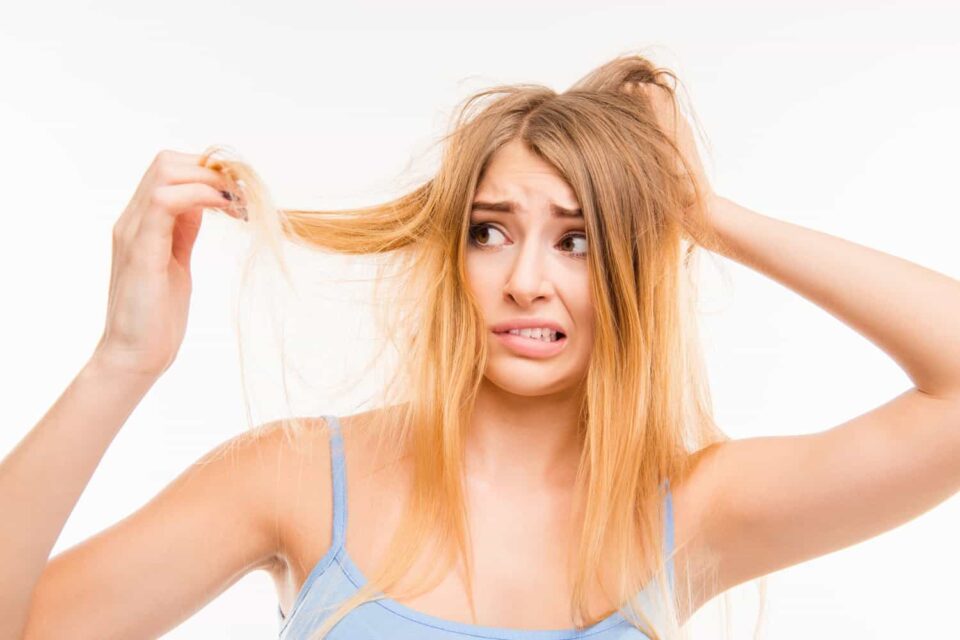COVID-19 is linked to several well-known symptoms, including a loss of smell and taste perceptions. People are already reporting hair loss as a result of the virus. Let’s see if there’s a link between COVID-19 and hair loss.
Thankfully, the COVID-19 pandemic has almost reached its height. Countries are recovering it all around the world. As healthcare specialists try to learn more about the condition, many of the after-effects of this infectious disease are still being found.
What is the latest research on COVID-19 hair loss?
Representative health authorities such as the World Health Organization (WHO) and the Centers for Disease Control and Prevention (CDC) have no conclusive data on hair loss (CDC). As a result, hair loss is not typically associated with COVID-19.
However, investigations are being carried out worldwide to assess the prevalence and incidence of hair loss in COVID-19 patients. For example, Dr. Natalie Lambert of Indiana University School of Medicine collaborated with Survivor Corps on a study.
Survivor Corps is a volunteer organization that connects COVID-19 survivors with medical and scientific experts worldwide. This forum did some polls to inquire about the symptoms that COVID-19 survivors were still suffering after they had recovered from the condition.
According to the findings of this study, more than a third of survivors experienced hair loss. This revealed that COVID-19 patients had higher hair loss than data collected by health representative bodies.
Another study published in The Lancet indicated that 22% of Covid-19 users had had hair loss. Hair loss in coronavirus patients has become a heated issue of dispute due to the findings of both of these studies and a few others around the world. The causes of this baldness are currently being investigated.
What caused the hair loss in COVID-19?
Hair loss has been observed in COVID-19 patients, prompting healthcare specialists to investigate the mechanism behind it. As a result, they’re working together to figure out what’s causing the hair loss.
Extensive research is required to understand the link between COVID-19 and hair loss. As with most of the symptoms of this condition, possible explanations for this hair loss are currently being investigated. Nonetheless, it is nearly universally agreed that COVID-19 causes acute Telogen effluvium.
The medical name for transient hair loss caused by specific stimuli is telogen effluvium. The loss of some hair is a common occurrence. You can shave 100-200 hairs per day. That’s quite typical. Telogen effluvium, on the other hand, occurs when hair loss exceeds distinct levels.
Telogen effluvium is a condition that a variety of reasons can cause. This increase in hair loss could be the body’s way of expressing internal issues. This could be caused by a variety of factors, including:
- Medicines (anti-inflammatory drugs and antibiotic)
- Surgery
- History of physical and psychological stress
- Lack of sleep
- Malnutrition, diabetes and weight loss
“COVID-19 causes a lot of physical and psychological stress,” says Dr. Najam Jamshaid, Head of the Dermatology Department at Nishtar Hospital Multan. “Blood flow towards essential organs rises during this stressed situation. As a result, the blood supply to the hair follicles and skin tissues decreases.”
Hair follicles begin to die and fall out of their roots due to a lack of nutrients. In medical jargon, this is known as Telogen Effluvium. Hair loss has been found in COVID-19 individuals in the first two months following infection. This progression is more rapid than hair loss caused by other stressors.
Will your hair grow back?
If you’re concerned about hair loss caused by COVID-19, the good news is that it’s usually just temporary. Always keep an eye out for other causes of hair loss. Hair loss caused by COVID-19 is only transitory if there is no other medical reason for it. “All you need is a little patience and a little care,” Dr. Jamshaid explains.
“It normally lasts three to six months,” says the narrator. Hair returns to its natural cycle after this. As a result, the hair thinning and shedding problem should be resolved within a year of its onset.”
So relax: your lustrous locks will soon return. You won’t have to worry about having a mature hairline.
What can you do if you’re losing hair due to COVID-19?
Hair loss has an impact on your self-esteem and morale. However, you should not be embarrassed about it, nor should you attempt to handle it independently. First and foremost, make sure that your loss is more significant than typical. Then, as usual, you should see your dermatologist.
You will be asked to provide a detailed medical history by a dermatologist. He’ll perform a physical exam and determine the extent and origin of your hair loss. Then he can rule out any other possible causes of hair loss. After evaluating from every aspect, he would recommend you a personalized treatment plan.
Sometimes all you need is an assurance from a professional that your hair loss is only temporary and will return to normal within a set length of time. This confidence is incredibly comforting. If at all possible, doctors advise reducing stress.
They’ll go over a variety of stress-reduction techniques with you. It could be conscious meditation, yoga, or something else entirely. So, if stress is the source of your hair loss, reducing stress will undoubtedly assist you.
If none of these methods work, medicines are an alternative. One of the drugs used to reduce hair shedding is minoxidil. Once again, it is essential to use medications only after consultation with your dermatologist.
Keep in touch with your dermatologist and be patient. Hair loss takes a long time to appear. As a result, it takes a long time for the issue to be fixed.
Final thoughts
It’s critical to remember that you survived a dangerous sickness and that your body is recovering from its consequences. Hair development, like all good things, takes time. Pick up a calming activity in the meantime!


